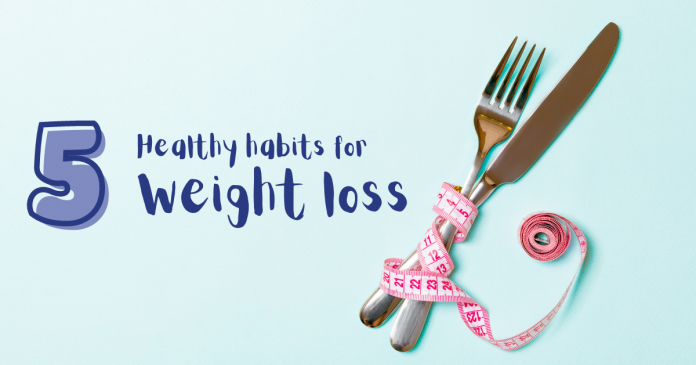Many diets, supplements, and meal replacement plans claim to help you lose weight fast, but they lack scientific evidence. However, some scientifically proven weight management strategies can be implemented. These strategies include exercising, keeping track of calorie intake, intermittent fasting, and watching your calorie intake.
Here are five ways for you to start losing weight!
1) Intermittent Fasting
Intermittent fasting (IF) is an eating pattern that cycles between periods of fasting and eating. There are no specific foods listed, but it does specify when to eat the food. As such, it isn’t a diet in the conventional sense but more accurately describes an eating pattern. Common intermittent fasting methods involve daily 16-hour fasts or fasting for 24 hours, twice per week.
Intermittent fasting can be done in several different ways – all of which involve dividing the day or week into eating and fasting periods. It’s usual to eat very little or nothing at all during the fasting periods.
Read more about intermittent fasting here
2) Reducing your intake of sugar and refined carbohydrates
Recent dietary trends are increasingly high in added sugars, and this has a link to obesity. Our beverages now contain more sugar than our food.
These sugars in foods and beverages are quick to digest, and they convert to glucose rapidly. A surplus of glucose in the blood triggers insulin, causing the adipose tissue to store fat. This contributes to weight gain.
If possible, people should replace processed foods with healthier alternatives. A few healthy food swaps include:
- rice, bread, and pasta made from whole grains rather than white
- fruit, nuts, and seeds instead of high-sugar snacks
- herb teas and fruit-infused water instead of high-sugar sodas
- smoothies with water or milk instead of fruit juice
3) Getting enough fibre
Unlike sugar and starch, fibre is a plant-based carbohydrate that cannot be digested in the small intestine. Fibre can promote weight loss by increasing fullness and preventing hunger.
Foods rich in fibre include:
- whole-grain breakfast cereals, whole-wheat pasta, whole-grain bread, oats, barley, and rye
- fruit and vegetables
- peas, beans, and pulses
- nuts and seeds
4) The importance of getting a good night’s sleep
Several studies have found that getting less than 5–6 hours of sleep per night is associated with obesity. This can be attributed to several reasons.
Research suggests that sleeping insufficiently or poorly slows down the body’s conversion of calories into energy, known as metabolism. Unused energy may be stored as fat when the metabolism is less effective. In addition, poor sleep causes the body to produce more insulin and cortisol, prompting fat storage.
A person’s sleep pattern also affects their leptin and ghrelin levels, which control their appetite. A person’s leptin level signals their brain that they are full.
5) Maintaining a healthy level of stress
Stress triggers the release of hormones like adrenaline and cortisol, which first cause the appetite to decrease. During times of constant stress, cortisol remains in the bloodstream longer, making people feel more hungry and potentially leading to them eating more.
Cortisol signals the body’s need to replenish its nutritional stores by using carbohydrates as its preferred fuel source. In response, insulin transports the sugar from carbohydrates from the blood into the muscles and brain. A person who does not use this sugar as fuel will store it as fat.
Researchers found that implementing an 8-week stress-management intervention program significantly reduced the body mass index (BMI) of overweight and obese children and adolescents.
Some methods of managing stress include:
- yoga, meditation, or tai chi
- breathing and relaxation techniques
- spending some time outdoors, for example, walking or gardening
In conclusion,
It is important to remember that there are no quick fixes when it comes to losing weight. Maintaining a healthy weight is best achieved with a balanced diet that consists of nutritious, whole foods. This should consist of 10 servings of fruits and vegetables, good-quality protein, and whole grains. It is also essential to work out for 30 minutes each day.


